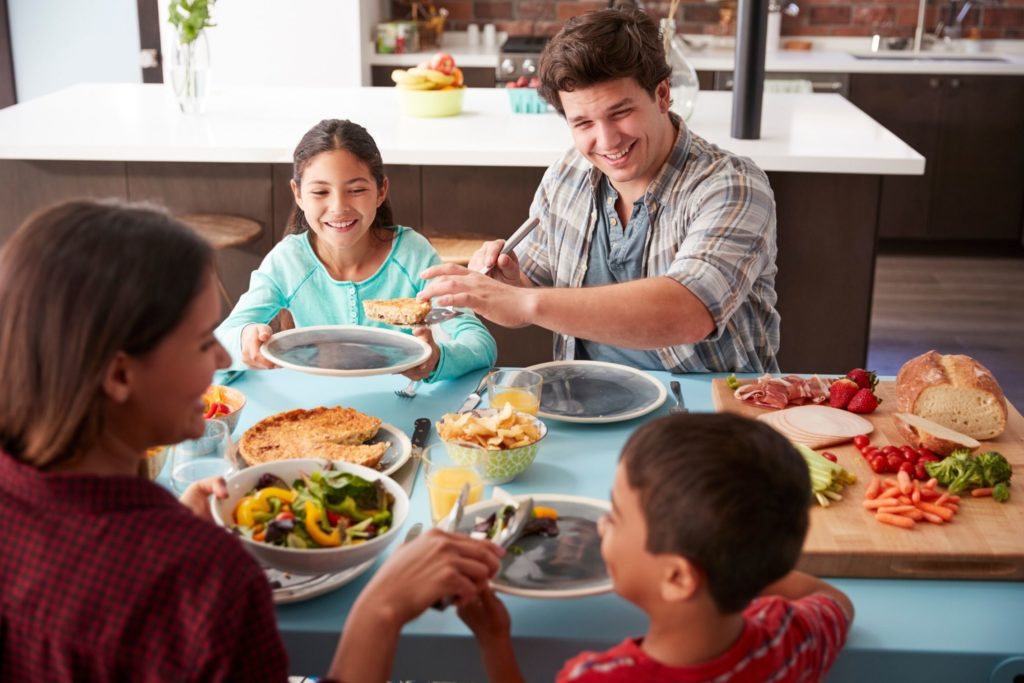Shared meals and happiness are deeply intertwined, revealing much about our lives and relationships. Recent research highlights that dining with others is not just a pleasurable activity; it serves as a significant happiness indicator. Studies have shown that people who frequently engage in meal sharing tend to report higher levels of life satisfaction and positive emotions. The social connection fostered during these moments is invaluable, emphasizing the meal sharing benefits that go far beyond nutrition. As we navigate a world where isolation increasingly challenges our well-being, prioritizing communal dining can pave the way for improved mental health and emotional fulfillment.
When we gather around a table to eat, it transcends mere sustenance, becoming a vital aspect of our emotional landscape. This convivial act, often seen as a celebration or a simple family ritual, plays a crucial role in our overall happiness. The benefits of eating together extend to enhancing our wellbeing measurement, offering insights into the quality of our social interactions. Engaging in shared meals cultivates stronger bonds, tap into collective joy, and serves as a benchmark for our mental wellness. As we explore these themes, it’s clear that the act of breaking bread with others could be a key to unlocking deeper connections and a greater sense of contentment in our lives.
The Connection Between Dining with Others and Happiness
Dining with others taps into fundamental human needs for social connection and emotional support, which are essential for happiness. Studies demonstrate that those who regularly share meals with friends or family report higher life satisfaction and improved mood levels. This correlation between shared mealtime and happiness can be attributed to the nurturing of relationships, allowing individuals to connect more deeply with those around them, fostering shared experiences and treasured memories.
Moreover, shared meals can serve as a foundation for establishing and deepening bonds. When dining together, people engage in meaningful conversations, share laughter, and create an inviting atmosphere that stimulates positive emotions. This contributes to a feeling of belonging, which is a significant indicator of well-being, according to social scientists. As more people dine apart, the average satisfaction with life tends to diminish, indicating that meal sharing is a vital aspect of maintaining social ties and enhancing overall happiness.
Frequently Asked Questions
How do shared meals indicate happiness?
Shared meals serve as a strong happiness indicator as they foster social connection and belonging. Research shows that people who regularly dine with others report higher life satisfaction and more positive emotions, suggesting that social interactions during meals significantly contribute to overall well-being.
What are the benefits of meal sharing for well-being?
Meal sharing offers numerous benefits for well-being, including improved social bonds, enhanced emotional support, and increased feelings of happiness. Engaging in shared meals can create a sense of community, reduce feelings of isolation, and promote positive mental health.
Can dining with others improve my happiness?
Yes, dining with others can enhance your happiness. Sharing meals allows for meaningful conversations and connections, which are essential for emotional well-being. The enjoyment and laughter during meal times can boost your mood and contribute to a more fulfilling life.
How does social connection relate to happiness levels?
Social connection is closely linked to happiness levels. Regular interactions with friends and family during shared meals can increase feelings of acceptance and love, both of which are crucial for emotional health. Studies show that strong social ties cultivated through dining with others lead to greater life satisfaction.
What role does meal sharing play in measuring happiness?
Meal sharing plays a crucial role in measuring happiness as it provides a clear, quantifiable indicator of social engagement. Unlike more subjective measures of well-being, tracking the frequency of shared meals offers a straightforward way to assess one’s social connections and overall happiness.
Why might Americans be dining apart more frequently?
The trend of Americans dining apart has been increasing, with about 25% reporting they ate all meals alone recently. Factors such as busy lifestyles, increased work commitments, and social media influence may contribute to this decline in shared meals, negatively impacting overall happiness and social well-being.
Is there a link between employment status and shared meals?
Yes, there is a notable link between employment status and the frequency of shared meals. Employed individuals often have more opportunities to dine with colleagues or family, correlating with higher happiness levels compared to those who may dine alone due to unemployment or social isolation.
What can policymakers do to promote shared meals and happiness?
Policymakers can promote shared meals and happiness by creating community programs that encourage social dining experiences, such as community dinners, cooking classes, and awareness campaigns highlighting the importance of meal sharing for mental health and social cohesion.
How does meal sharing affect mental health?
Meal sharing positively affects mental health by providing emotional support through social interactions, reducing feelings of loneliness and anxiety. Regularly breaking bread with others can create a nurturing environment that enhances psychological well-being and overall life satisfaction.
What future research could explore shared meals and happiness?
Future research could investigate the causal relationship between shared meals and happiness, examining whether increasing the number of meals shared leads to greater well-being. Additionally, studies could explore the effects of different cultural dining practices on social connection and happiness levels.
| Key Point | Details |
|---|---|
| Shared Meals and Happiness | Dining with others is linked to higher life satisfaction and positive emotions. |
| Research Findings | Shared meals are as predictive of happiness as income and employment status. |
| American Trends | More Americans are dining alone than ever before, particularly young people. |
| Future Research | Further studies are needed to determine if shared meals cause happiness or vice versa. |
| Policy Implications | Encouraging shared meals may be an effective way to improve overall well-being. |
Summary
Shared meals and happiness are deeply interconnected, highlighting how the act of dining together can significantly impact our emotional well-being. Research reveals that sharing meals fosters feelings of satisfaction and joy, serving as a predictor of happiness that rivals even financial stability. As society observes a troubling rise in solitary dining, particularly among younger generations, the need to promote communal meals becomes crucial. Future initiatives aiming to enhance social connectivity and mental health should prioritize encouraging people to share more meals, which may prove to be a simple yet powerful strategy to cultivate happiness in our communities.










